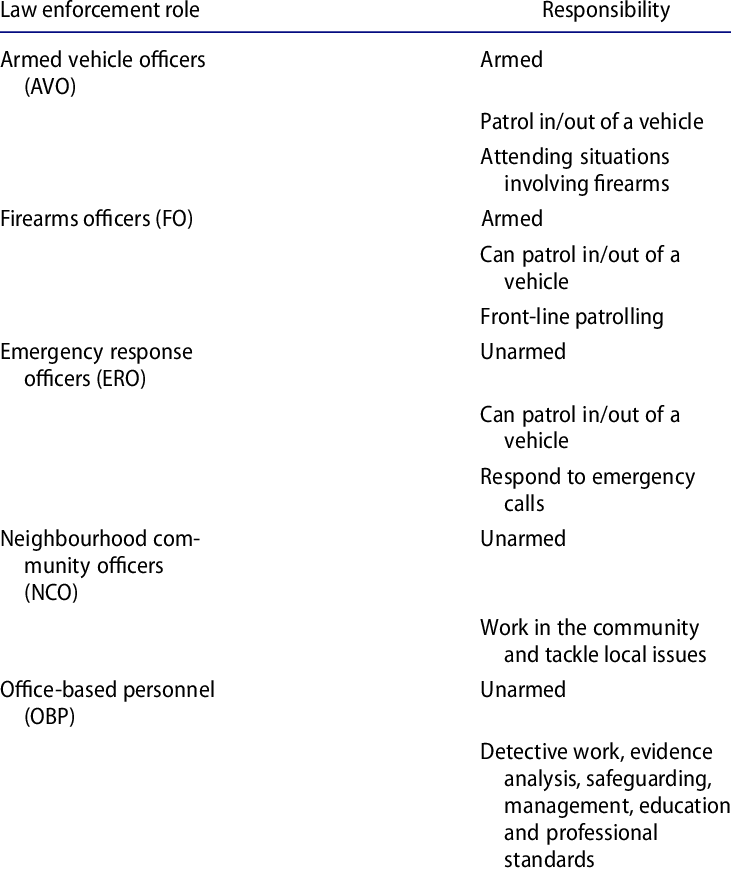Law Enforcement: Key Functions, Issues, and What's Next
Law enforcement is a fundamental pillar of any society, essential for maintaining order, ensuring justice, and safeguarding the community. By upholding laws and protecting citizens, law enforcement agencies work tirelessly to create a secure environment. This article delves into the various aspects of law enforcement, exploring its importance, the different types of agencies, the responsibilities of officers, the challenges they face, and the future of this crucial field.

Importance of Law Enforcement
Law enforcement is vital in upholding societal stability and security. It operates within the broader criminal justice system, aiming to protect victims, convict offenders, and ensure due process. The diligent efforts of law enforcement officers, first responders, and crime investigators help prevent chaos, violence, and lawlessness. By holding criminals accountable and fostering a sense of safety and trust, law enforcement maintains peace and order, making it indispensable for any community.
Types of Law Enforcement Agencies
Law enforcement agencies in the United States range from small-town police departments to expansive federal agencies. The roles and opportunities within these organizations depend on their mission, size, and jurisdiction. It's important to choose an agency that matches your career aspirations and interests.
U.S. Federal Law Enforcement Agencies
The United States has 65 federal law enforcement agencies and 27 offices of inspectors general employing full-time personnel authorized to make arrests and carry firearms. These agencies are responsible for a wide range of duties, including police response, patrol, criminal investigation, enforcement, inspections, security, protection, court operations, and corrections.
In 2008, the Bureau of Justice Statistics reported that the largest employers of federal officers were:
· U.S. Customs and Border Protection (CBP): CBP officers protect U.S. borders, enforce immigration laws, and prevent illegal entry of goods and individuals.
· Federal Bureau of Prisons (BOP): BOP staff manage federal prison facilities and oversee the custody and rehabilitation of inmates.
· Federal Bureau of Investigation (FBI): FBI agents handle criminal investigations and national security matters, tackling crimes like organized crime, terrorism, and cybercrime.
· U.S. Immigration and Customs Enforcement (ICE): ICE agents enforce immigration laws and investigate illegal activities related to the movement of people and goods.
Other notable federal agencies include:
· U.S. Secret Service: Protects national leaders and conducts investigations into financial crimes, including counterfeiting and fraud.
· Bureau of Alcohol, Tobacco, Firearms and Explosives (ATF): Enforces federal laws related to firearms, explosives, arson, and alcohol and tobacco trafficking.
· Drug Enforcement Administration (DEA): Leads U.S. efforts against illegal drug production, trafficking, and distribution, including international operations.
· U.S. Marshals Service: The oldest federal law enforcement agency, responsible for judicial security, fugitive operations, witness protection, and asset forfeiture.
State and Local Law Enforcement Agencies
The United States is home to more than 17,000 state and local law enforcement agencies, ranging from small departments to large organizations with thousands of officers. These agencies include:
· Local Police: Municipal, county, tribal, and regional forces that enforce local laws, conduct patrols, and investigate crimes within their jurisdictions.
· State Police / Highway Patrol: State-level agencies that perform various duties, including highway patrol and statewide investigations, and assist local police in larger incidents.
· Special Jurisdiction Police: Agencies that provide police services for specific areas or entities, such as parks, schools, airports, hospitals, and government buildings.
· Deputy Sheriffs: County-level officers who enforce state laws, manage local jails, serve warrants, and respond to calls in areas outside local police jurisdictions.
Responsibilities and Roles of Law Enforcement Officers

A law enforcement officer's chief duty is to ensure the safety of people and property. All their activities are tied to this fundamental responsibility. There are various types of law enforcement officers, each with distinct roles. Regardless of the situation, officers are expected to uphold their duties both on and off duty.
Responsibilities of Law Enforcement Officers
Officers are pivotal in maintaining public order, solving crimes, and fostering trust within communities, institutions, and individuals.
Although daily tasks can vary, particularly in emergency situations, typical responsibilities include:
· Educating the public on policies and services
· Investigating suspicious activities
· Apprehending suspects
· Escorting detainees
· Preparing reports on incidents and investigations
· Serving court documents
· Providing testimony in legal proceedings
Roles of Law Enforcement Officers
The specific tasks of law enforcement officers vary depending on their role and the agency they serve. Here are some common types:
General Law Enforcement Officers
These officers, often in uniform, conduct patrols and respond to service calls. They might manage traffic at accident scenes, investigate crimes like burglaries, or provide first aid. Many urban police departments now emphasize community policing, where officers build relationships with locals to better combat crime.
Detectives
Typically not in uniform, detectives investigate crimes by collecting evidence and facts. They often specialize in areas like narcotics, theft, or homicide and work on cases until they are resolved, either through arrest, conviction, or case closure.
Sheriffs and Deputy Sheriffs
Operating at the county level, sheriffs are usually elected and perform duties akin to local or county police chiefs. Deputy sheriffs handle various tasks including patrolling, responding to calls, investigating crimes, and administrative duties.
State Police Officers
Also known as state troopers or highway patrol officers, these officers have statewide jurisdiction. They primarily focus on traffic safety, enforcing laws, assisting at accident scenes, and investigating vehicle-related crimes.
FBI Agents
FBI agents handle federal criminal investigations, enforcing over 260 statutes. Their work includes probing organized crime, government fraud, public corruption, terrorism, and national security threats.
DEA Agents
As the primary domestic drug enforcement agency, DEA agents enforce drug laws and coordinate U.S. drug investigations internationally. Some agents work undercover to infiltrate drug organizations.
U.S. Marshals and Deputy Marshals
The U.S. Marshals Service, the oldest federal law enforcement agency, handles duties such as judicial security, fugitive tracking, witness protection, prisoner transport, asset forfeiture, and serving court documents.
Challenges Faced by Law Enforcement Officers
Law enforcement officers encounter a myriad of challenges in their line of duty. Resource constraints often limit their ability to address all incidents effectively, necessitating prioritization and sometimes difficult decisions. The evolving nature of crime, particularly with the rise of cybercrime, requires continuous adaptation and specialized training. Public perception and community relations also pose significant challenges, as officers strive to build trust while enforcing laws impartially. Addressing these challenges is essential for maintaining the effectiveness and integrity of law enforcement agencies.
The Future of Law Enforcement
The future of law enforcement is poised for significant transformation, driven by advancements in technology and evolving societal needs. Emerging technologies, such as artificial intelligence, drones, and advanced forensic tools, are set to revolutionize crime detection and prevention. Community policing strategies are becoming increasingly important, emphasizing collaboration between law enforcement and the communities they serve. However, future challenges, including cyber threats and the need for ongoing training and adaptation, will require law enforcement agencies to remain flexible and innovative to continue effectively safeguarding society.
Conclusion
In summary, law enforcement is vital for the safety and stability of communities. The unwavering dedication of law enforcement professionals in upholding the law and protecting citizens ensures that justice prevails and that society remains secure for everyone.